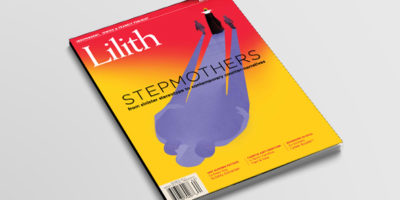
Sandstorm
 How do you find your bearings in such an illogical place, Rae wonders.
How do you find your bearings in such an illogical place, Rae wonders.
Lookalike white stucco houses with terracotta roofs follow one another on grid-like streets until a wall stops them dead in their tracks. Behind each house, an emerald golf course, which shouldn’t exist in the desert, twists its way through the whole community. And everywhere you turn, dusty brown mountains peer down upon City del Sol and the sand dunes biding their time outside the gates.
“How long have your parents lived here?” Andy’s voice jolts Rae.
Rae notices the sweat on his cheeks and the blotches on his new shirt, despite the air conditioning blasting their rental car.
“They moved here three years ago, just before I moved back east to D.C.” Rae answers, then stops abruptly next to the golf club, a sprawling stucco and stone edifice.
“Hey, check the app, Andy. This place has got me so screwed up, I might have missed the turn.”
“Yep. It was four blocks back. Did you miss their street on purpose?”
Rae snorts. He knows her too well. Maybe she does want to delay her appearance at Deb and Eddie’s doorstep — if only for a few minutes. Andy’s sweat-beaded forehead suggests that he doesn’t regret the slight delay either.
Rae makes one of her infamous U-turns to head the car in the right direction, and is only yards down the road when a siren and flashing light intrude.
“Crap. The damn Sol police.” Rae pulls the car to the curb and watches a reed-thin officer, no taller than a bar mitzvah boy, approach her car.
“They’ve got their own police force?” Andy asks.
“It’s to catch people who come to rolling stops as they race for the exit gates.”
Andy laughs just as the officer taps on Rae’s window.
“Sorry, officer. Just a little confused. I’m visiting my parents, but it’s been a while.” She flashes a smile at the officer, but he remains stone-faced.
“It’s no laughing matter, young lady.”
Young lady?
“We’ve got seniors here,” the officer continues. “On foot and on golf carts. We can’t afford to have reckless drivers.”
He pulls out a pad, scribbles something, and hands the ticket to Rae with a flourish. “Just $25 for first-time offenders, but tickets double each time you get another one. Don’t break the law again.”
Rae erases her smile and fakes a deferential response, “Yes, sir. I’m sure I’ll remember.”
“This place is about as close to heaven as any place on earth, and we mean to keep it that way.” The officer hitches his belt with his thumb and attempts a swagger as he returns to
his car.
Andy bites his lower lip as if to suppress a smile, then reaches across and rubs Rae’s leg. Even in this foreign setting, his touch excites Rae, like when his hand first grazed hers at the buffet table at a Library of Congress conference, and her thoughts shifted from the preservation of digital archives to the possibility of something much more delightful. They still laugh about the bowl of tabouleh that brought them together two years ago, that brings them now to this strange desert town.
Deb Richman’s perfectly spectacular retirement home is just about finished. She and Eddie have purchased desert-land paintings from local galleries and hung them next to favorites from their old home. They’ve planted rose bushes that the gardener prunes to avoid obscuring the golf course. They’ve reupholstered furniture, replaced the flooring with Travertine tile, bought new bedding, and installed heat-repellant shades so that the intense sun won’t discolor their new purchases or defeat the air conditioner. And they’ve hauled their baby grand piano 3,000 miles across mountains and deserts and installed it in a prominent, sun-protected place in the living room.
Yet all Deb notices when she enters her living room is a picture of the three of them — Eddie, Deb, and Rachel — taken on the couple’s fortieth anniversary, three years ago. It sits alone on the well-buffed piano top, surrounded by emptiness that unsettles Deb and propels her to the guest suite to fluff pillows and smooth the bedspread.
Deb, who is too old to consider herself a Debbie anymore, presses her nose against the guest-suite window, hoping to glimpse her daughter’s arrival.
“Stop spying, Deb. When she comes, she comes. If she catches you looking out the window, she’ll never let you live it down,” insists Eddie from the door of the guest bathroom, where he has rearranged the supplies so they look like a hotel display.
“Look who’s talking, big shot. You’ve gone outside to pick lemons from the tree three times since she called to say she’s about an hour away.”
“The tree was overloaded. Besides, it’s always nice to have fresh lemons in the iced tea. You wouldn’t find lemons in our old backyard in Maryland at this time of year.”
“You wouldn’t find them there ever.”
“Get away from the damn window,” Eddie says, gently leading her back into the living room.
“Sit. Read. Watch TV. Contemplate your belly button. We’ve waited long enough for this visit. Let’s not ruin it.” He plops her on the taupe sofa, then plops himself down next to her and starts his neck-rub shtick.
“I’m not in the mood.”
“I’m not asking for sex. Just for calm.”
Deb bristles as he leans in to kiss her cheek.
“Last night in my dreams, I heard a voice,” Deb announces.
She waits until Eddie looks into her eyes.
“A deep voice like God,” she continues. “And the voice said This is the one.”
“Deb, don’t force this thing.”
“But maybe God’s already made it happen. I wonder what Andy’s like. She hasn’t said a thing. Just that he’s a good friend. Is that what they call boyfriends these days — good friends? What if he’s really just a good friend and nothing more?”
“Want a martini? It’ll calm you down.” Her aging James Bond saunters toward their bar, something they never had in Maryland but is an absolute necessity in City del Sol.
“It’s not Happy Hour yet.”
“Happy Hour is whenever you want to be happy. I want to be happy. Now.” He adds an extra shot of vermouth to each glass and struts carefully to avoid spilling a drop on their new upholstery. “L’Chaim.”
Deb takes a big gulp and allows herself to dream. “Maybe in six months we’ll be toasting at a wedding.”
“Or not,” Eddie says sardonically.
“I hear a car! They’re here.” Deb pops up from the sofa, but Eddie yanks her back down.
“Let the bell ring. Then count to ten and walk slowly to the door.”
“Seven, eight, nine, ten,” Deb mumbles, then rushes to the door and flings it open only to find Rachel alone, her hand poised to knock. A daughter shouldn’t knock on her own parents’ front door.
“Rachel!” As Deb squeezes Rachel, she inhales her fragrance, detecting traces of a new perfume — or maybe it’s Andy’s cologne — and spices from Mexican food — maybe from a fast food joint along the road. Why did they stop to eat when Rachel knows she’s been cooking?
When Rachel tenses, Deb releases her and takes in the new hairdo, short, sleek, not the shaggy hair of her last visit. Rachel looks so — what’s the word? Put-together. That’s what it is.
Then Eddie flings his arms around them both, and he exhales a half-sob, which Deb suspects he’s been holding in since Rachel’s last visit.
“Dad, you’re killing me. It’s so hot here. I haven’t adjusted yet.”
She’s made them wait for 18 months, and she can’t even give them two minutes of pleasure. But Deb knows there’s no use complaining.
“How was the ride from L.A.? And your friend Andy, where is he?” Deb chooses the words carefully—your friend, not your boyfriend. Rachel can’t know that she’s already calculating the number of months necessary to make a nice wedding.
“He’s unloading our suitcases.”
The trunk slams and Andy emerges from its shadow, framed by the azure sky, one suitcase in each hand. His skin is olive, his eyes dark as dates, his hair jet black, his face Semitic in a non-Jewish way.
“Hi,” he says. “I’m Amun Elkassabany.” He says his name extra loud, as if he’s rubbing it in.
The granite island in the kitchen is being overtaken by egg salad and tuna fish and havarti cheese and seedless rye bread and Israeli couscous and a special fruit kugel that Deb has nuked in the microwave. Eddie watches Deb silently as she bustles about the kitchen and instructs Rachel to set the table and get iced tea from the fridge, and asks Andy — or should they call him Amun — if he can eat what she’s prepared or if he’d like something else. Eddie watches Rachel brush her hand against her boyfriend’s shoulder — he’s clearly a boyfriend — and sees Andy — he’d rather think of him as Andy — mouth the words love you.
She should have told them. A little warning would have made this all so much easier. They could have practiced what to say, tested what they thought, decided on a strategy.
Eddie doesn’t want to eat a thing, especially not the couscous. He’s a traitor to Deb if he says he isn’t hungry, but more of a traitor to his people if he eats this food with an Arab. From Egypt, of all places. And not even a Christian.
“So how long have you been friends?” Deb pauses too long before the last word.
Rachel looks at Andy, then replies, “Oh, for a while now.”
“And what do you do?” Deb continues.
“I’m a Middle East specialist with the Hoover Institute.”
“That sounds impressive.”
She’s trying too hard, Eddie thinks. And it’s not worth it. He watches the food shtupping until he can’t stand it anymore, rises, and heads to the bathroom.
“Eddie, you’re not eating. Are you feeling okay?”
“I’m fine. Just gotta piss.”
“Dad!”
“Pardon my French.”
In the privacy of his bathroom, he sits on the toilet and drops his head into his hands. God must be laughing at them. Again. In the mirror float images of dead fetuses and Deb buried under blankets in a dark room. All that love and nowhere to put it. And now his daughter’s brought home an Arab.
After dinner they take drinks to the back patio where a sunset of fuchsia and pink horizontal bands is disappearing behind blackening mountains. The others are talking about the flight to L.A., about visits with Rachel’s friends from the UCLA library, about a weekend the couple spent in New York. Eddie concentrates on the breeze stirring his rose bushes and rustling his lemon tree.
“Dad. You’re so quiet.”
“So?”
“So we came here for a reason. I want you to get to know Andy, and he wants to get to know you.”
“What the hell for?”
The quiet hangs heavy. No one dares touch the subtext of
his question.
Finally, Rachel talks. “This isn’t what I wanted.”
“It isn’t what I wanted either,” Eddie says.
“Excuse me, Rae, Mr. and Mrs. Richman. I’m tired. I think I’ll just get ready for bed.” Andy brushes his hand across Rachel’s hair, and she leans backward into his chest, tilting her chin upward until their eyes lock.
When he’s gone, the old Rachel appears, the one who moved east after they’d moved west to be near her.
“You’re a cliché. A worn-out person with a worn-out world view,” she says.
“A person is only a cliché if he’s living someone else’s life. This is my life, girl, my choices, and I damn well like it.”
“Rachel. Eddie. Enough.”
“And this is my life. I’m marrying Andy next month. And I don’t care what you think about it.”
The sand pounds the windows of the guest suite while outside neglected trash cans and lawn furniture clang as the winds buffet them about without regard for their purpose or their owner. Andy lifts the thermal shade and finds comfort in the howling winds and the sand rivers overtaking the street and the rock gardens and the lemon trees. At least he knows how this storm will end. The winds will die down. The occupants will tentatively emerge from their homes with brooms and shovels and chainsaws. The work of restoring their homes and their neighborhood will begin. He’s seen these storms before. Not in the City del Sol. But in Egypt when he visited his grandparents and his great uncles and aunts, when he was a boy and they were all alive.
The storm brings back memories of baba ghanoush and baklava and koshary simmering on the stove — and relatives gathered round the table and his gidda, his grandmother, bringing dish after dish from the kitchen and urging him to eat more. “You’re a growing boy, my Amun,” she says. Like Deb spreading foods across the granite island as an offering to Rae.
He’d seen the sandstorm coming as he and Ed were finishing their morning walk to the golf club. Ed had asked him, “So how do you think you’d feel at our Passover seder?” Andy had wanted to say, “Your daughter hasn’t seen you at Passover for years. I wouldn’t worry about it.” But there was no winning a verbal battle with history, even though he betrayed his gidda with his silence. Dark thunderstorm clouds filled the sky. Then voluminous dust clouds encroached on City del Sol. The lecture suspended, they jogged home and locked the doors and windows just in time for the onslaught.
He doesn’t know what is worse. The anger of Ed that reminds him of his own father. Or the smothering eyes of Deb that measure each gesture between Rae and Andy. Or maybe the picture of Deb and Ed’s beloved Western Wall in Jerusalem that reminds him of the gulf between them. Or realizing that Rae has pieces of Rachel in her that she hasn’t yet acknowledged. Or wondering if Rae has fallen in love with him in part because he will irritate her parents and reinforce their separation. Or suspecting that he has fallen in love with Rae for the same reason.
Loud voices are coming from the living room. Ed shouts, “You picked an Arab just to spite me.” Rae shouts, “You self-absorbed idiot. My life is not all about you.” Deb sobs.
He prefers the storm outside to the one inside. Tomorrow, when the sandstorms have ended and they have dug out their rental car, he and Rae will return to L.A. and fly back to D.C. Then what? The marriage that Rae has angrily announced to her parents—is their love strong enough to sustain it?
Rae says her life isn’t about Ed, yet five minutes after Andy proposed, she announced, “I want you to meet my dad.” And though he rarely visits his parents, he had answered, “And you’ll come meet my baaba in Florida.”
He remembers Deb waiting to greet him on the front doorstep as he emerged from behind the car with their luggage and watching her eyes fill with uncertainty.
And why had he introduced himself as Amun when he rarely uses that name anymore? His parents had named him for a god, so precious was their long-awaited son who would distinguish the family name in their new county. Had he used the buried name to sabotage a relationship that scares him?
The door squeaks, and Rae enters, her eyes puffy and red like the terracotta roofs. She says nothing, just climbs into bed and curls into a ball with her back to him.
So familiar and yet so foreign. Her thin nose with its Semitic twist. Her skin pale, translucent. Her rolling curves that his hands long to explore.
He resists touching her, and respects the space between them. If only she would make a joke out of their visit, like her joke about the bowl of tabouleh or about the City del Sol police. If they laugh together, her smile will pry him open before he can stop himself and think rationally again.
Oh, Rae, he longs to call out. If we marry, will we last long enough to put a picture on the piano for our fifth anniversary?
He rolls closer, stirred by the scent of her skin, and silently rests his hand on her slightly rounded stomach where their child grows, a child they learned about six days before their trip. No one else knows. Not a friend. Not a doctor. Not too late to pretend this new life never existed and go their separate ways.
He hears his father saying, “Amun, she’s not the girl for you.”
Still, he strokes her belly, remembering with each stroke why he loves her. He imagines their child learning to walk, studying in their kitchen, getting married, giving them grandchildren.
She turns toward him, a desert glow illuminating her face. She molds her curves into his body and nestles her head in the hollow next to his chin, making one universe out of two.
Outside the winds continue to howl, the trash cans rattle down the streets, and the sand invades the imperceptible cracks in the white stucco house with the terracotta roof and the lemon tree in the gated City del Sol.
Carol Westreich Solomon’s young adult novel is Imagining Katherine. Her work has appeared in Poetica, Persimmon Tree, the Washington Post, and on JewishFiction.net.



